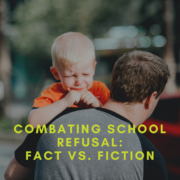From a Teacher to a Teacher: Kindness in the Classroom

Dear fellow educator,
I think it goes without saying that these are crucial times for our young people, not only with regard to education, but also in forming the next generation’s principles. All politics aside, our students are coming of age in a time where kindness, empathy, and integrity have been shoved aside in favor of judgment, rivalry, and naiveté. As we move into a new school year, fervent introspection has me focusing on one question: how can we craft and nurture ‘goodness’ in our schools?
Perhaps one of the biggest perceived roadblocks in our quest to add kindness to the curricula is the fact that we are here to educate, not parent our students. No matter what age, our students come to us with a belief system and moral gauge that far exceeds our reaches. With so many uncontrollable variables at play in our classrooms, how could we possibly begin to stomp out hate that may have been engrained in a child since day one? Is it even acceptable, as mere educators, for us to take on that role or responsibility? These perplexing questions may forever go unanswered.
Instead of looking at changing the child’s cognizance, I’ll begin to nurture kindness by looking at my personal practices in the classroom—let’s consider it a ripple effect of sorts.
- Use seating charts to recognize the “lonely students.” This is a concept used by a veteran teacher from Texas throughout her entire career. On Fridays I’ll ask students to write down the names of two people that they would like to sit with next week. I will make clear that these requests are not guaranteed to be granted. Students will occasionally get their wishes. However, the key here is that I am not concerned with the seating chart in the least—who sits beside whom is of no concern to me. I am looking instead for the names that are not written down—which child is never sought out as a seating partner? Are these missing names indicative of a bullying problem? Do I recognize signs of grief or depression in any of the students that are not requested as seating partners? By analyzing the seating requests, I am better able to reach out to the children that may feel lonely or withdrawn and potentially change the course of their unhappiness.
- Praise acts of kindness just as much, if not more, than test scores, grades, or GPAs. Academia is designed to breed competition through class rankings, SAT scores, honor roll lists, etc. Several schools in Montgomery County celebrate their seniors’ achievements by posting each student’s college admittance for the coming year in the local newspaper—a great opportunity for young scholars to shine. However, with such recognition comes an inevitable ranking or hierarchy among graduates. Seeing my name and future university in print, followed by so-and-so attending Harvard, would undoubtedly sour my sense of accomplishment. Yes—that’s the real world—someone is always going to be smarter, more successful, better… Consider this: Focusing on achievements in kindness would not take away from anyone’s academic achievements. This praise and acknowledgment would simply be an additional measure of character—one that is just as important (and sometimes as lucrative) as academic success. If a student is struggling academically, try showing appreciation for that student’s kindness. Highlight students that have shown acts of kindness to others—use this as an opportunity to place value on the concept of being a good person.
- Model empathy at any opportunity. Seeing as I teach middle school, empathy is something that many of my students are still grasping. During the adolescent years, the brain is primed to self-serve. This sometimes creates an inability to see things from another’s perspective. It’s not that they don’t want to—it’s that the adolescent brain is still maturing. Demonstrate how empathy works by expressing your own instances of relating on an emotional level. Try starting the conversation with, “You know that we all make mistakes…” or, “I’m upset that you’re getting down on yourself for one low grade…” or, “I see that you’ve really tried to improve and I admire your effort.”






